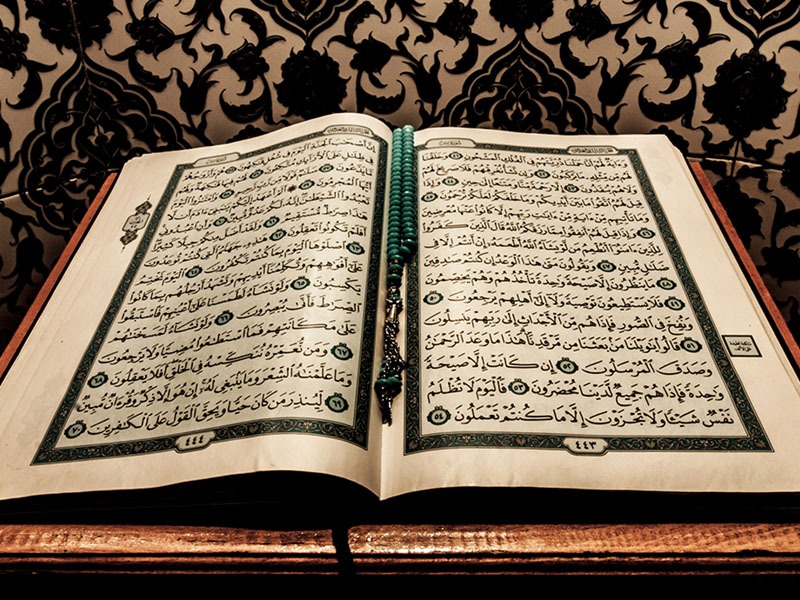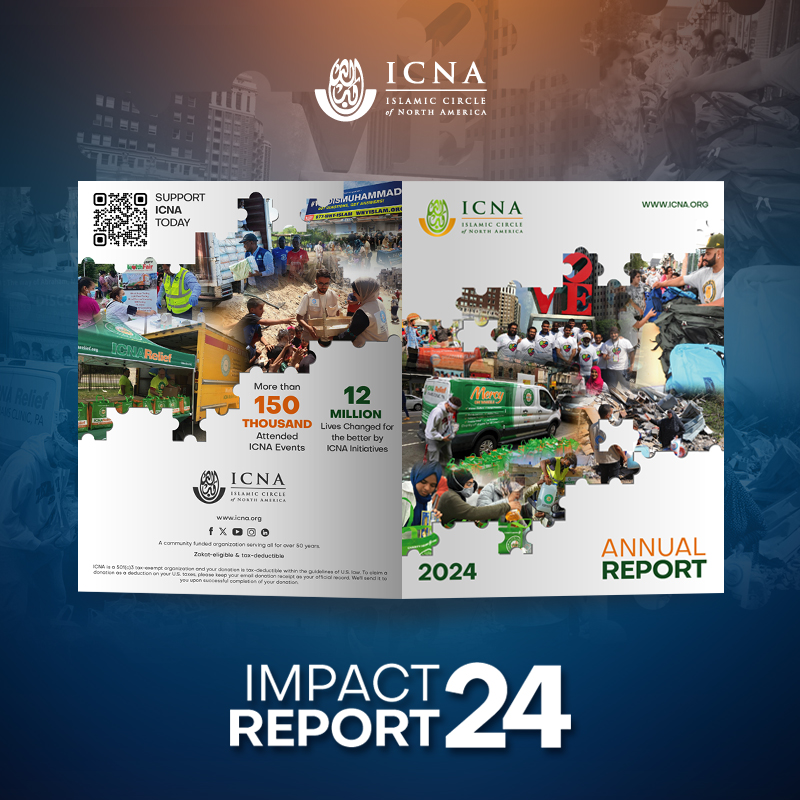
Hania H
Life is unpredictable. No matter who we are, each of us will face hardships at some point—whether it’s the loss of someone we love, stress from responsibilities, or moments of failure that shake our confidence. These struggles often make us feel isolated from the people around us, as though no one can truly understand what we’re going through. However, there is a source of comfort and guidance that is always within reach: the Qur’an, the holy book of Islam.
What makes the Qur’an remarkable? How can it help us find peace? Isn’t it simply just a book? The Quran is not just any book; it is a book that does not dismiss human pain or ask us to ignore it. Instead, it acknowledges the reality of our suffering and grief while showing us how to both face it and overcome it. God never asked us to bury our feelings; He told us over and over to turn to him, to ask him for peace, and to have faith in him that whatever he wills for us is what’s good for us.
The Qur’an describes itself not only as guidance sent to mankind, but also as a source of healing. In one verse, it says:
“And We send down in the Qur’an that which is healing and mercy for the believers.” (17:82)
This verse elaborates on how God did not only send the Quran to guide, but also to heal. He created mankind, and who can know your heart better than the one who created it? Just as the body requires medicine when we are physically ill, the soul requires words of comfort. It requires us to feel the connection between ourselves and God to truly feel at peace. Reciting or reflecting on verses can ease anxiety, calm fears, and remind believers that they are never truly alone, no matter how much it seems like they are.
Healing is not only about recovery from illness or physical pain; it also refers to the quiet healing of the heart—the kind that comes from knowing that pain has meaning, that relief is possible, and that God is always near.
A Story of Patience & Faith
One of the most powerful examples of resilience in the Qur’an is the story of Prophet Ayyub, known in the Bible as Job. His story is one of immense suffering—he lost his wealth, his health, and even his family. Yet, throughout his trials, he never lost his faith in God. He prayed day after day, week after week, month after month. He never lost hope in Allah, knowing that God was with him and knew what was best for him.
The Qur’an describes his prayer:
“Indeed adversity has touched me, and You are the most merciful of the merciful.” (21:83)
In response, God restored his health and blessings. In fact, God gave him even better than what he had:
“So We responded to him and removed what afflicted him of adversity, and We gave him back his family and the like thereof with them as mercy from Us and a reminder for the worshippers.” (21:84)
This story illustrates one of the key tools the Qur’an tells us to use when we are hurting or struggling: patience. In Islam, patience is not passive endurance. It is an active form of resilience—choosing to remain steadfast and hopeful even when life feels unbearable. God mentions those who are patient multiple times in the Quran, saying, “Indeed God is with the patient”. Ayyub did not pretend he was unaffected by his suffering; instead, he turned to God honestly with his grief. His example teaches Muslims that hardship is not meant to silence us, but to bring us closer to the Divine.
Having Hope Through Hardship
Although at first glance Islam doesn’t seem related to mental health in any way, it is very connected to it. God constantly reassures us in the Quran that we will make mistakes, and we will struggle…but we will also find peace. We will find mercy if we ask for forgiveness, we will find safety when we ask for protection, and we will find a path when we ask for guidance. One of the most repeated assurances in the Qur’an comes in a short chapter called Surah Inshirah (The Relief). It states:
“For indeed, with hardship [will be] ease. Indeed, with hardship [will be] ease.” (94:5–6)
Notice how the phrase is repeated twice. In Islamic tradition, repetition signals emphasis. When this verse is repeated two times, it emphasizes that no matter how tough it feels, God will make it easy. With every single hardship you face, big or small, God is for sure going to send you ease. It is as though God is saying directly: Your pain will not last forever; with every hardship comes a path to ease. This verse has become a mantra for Muslims navigating grief, depression, or uncertainty. It shifts the perspective from despair to hope, reminding them that struggle and relief are intertwined.
Another theme woven throughout the Qur’an is God’s closeness to those who are struggling. For Muslims, this nearness is not symbolic—it is deeply personal. In one verse, God says:
“When My servants ask you about Me, indeed I am near. I respond to the call of the caller when they call upon Me.” (2:186)
This is one of the most comforting promises in the Qur’an: the idea that your calls do not vanish into silence. Every whispered hope, every cry in the dark, is heard by God. Indeed, He is with you, no matter where you are and what you face. You are never alone because God never leaves you. When you call to him, rest assured, God(who is the All Hearing and All seeing) is listening to you.
The Qur’an states:
“O believers! Seek comfort in patience and prayer. Allah (God) is truly with those who are patient.” (2:153)
This verse provides both a method and a reassurance. The technique is patience—practices that give structure and calm to troubled times. The reassurance is that God is “with” those who embody patience, meaning believers are never left to face hardship on their own.
The Qur’an’s Tools for Strength
God has given us so many ways to cope with whatever difficulties we’re going through. We just need to believe and keep our faith strong even when it’s hard.
We need to use patience as resilience. Instead of seeing patience as passivity, use it as an active tool for survival—choosing to have hope over falling into despair. Be patient when you feel like you aren’t being heard by the people around, be patient when you don’t know what to do, be patient when you are weighed down by grief, and in your patience, remember that God is closer to you than anyone else.
Call out to God as a release. Whether it be the hopes you have in your heart, or the struggles you can’t voice to anyone—ask Him. Ask him for the mercy no human is giving you, ask for the understanding you feel no one has, ask for the love you don’t know where else to find. Call to him when you need help, call to him when you are grateful, call to him when you are afraid, and call to him when you simply want to feel close to someone who loves you more than a mother loves her child.
Keep hope in your perspective, even when it’s hard. Endure the storm with faith, knowing the sun will come out soon. With every tear you cry, keep hoping. Have hope when your path feels endless, have hope when you are burdened with struggles you can’t hold, have hope when every door seems closed, and have hope knowing that with God by your side, nothing is impossible.
Above all, believe that God will never ever forsake you. Keep turning to him even when it feels impossible. Turn to him when you want forgiveness, and he will forgive. Turn to him when you want peace, and he will grant it. Turn to him when you want strength, and he will make you strong. Turn to him when you want love, and he will surround you with his mercy. Turn to him simply because his doors are never closed to you.





